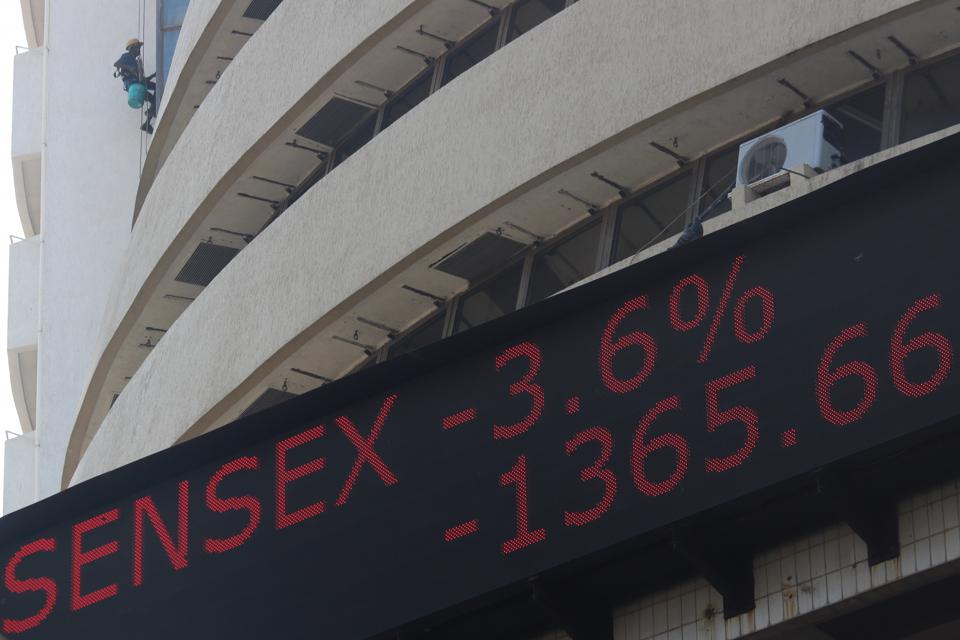National Stock Exchange
First and foremost, let us have a look at what is the National Stock Exchange of India. It is the financial exchange that is leading in the nation with its headquarters located in Mumbai. It was incorporated in the year 1992 and slowly evolved and advanced to an electronic automated system. It provides facilities to the shareholders all across the country. As per the trading volume metric, the exchange system stood at rank four back in 2015. The operation of the stock exchange started in the year 1994 under the Indian Government that brought in transparency in the capital market of India. It was set up by a group of leading companies and other financial institutions according to the recommendations of the Pherwani Committee. It is comprised of a variety of shareholding assets from domestic and global investors. It also became the first to provide electronic facilities for trade in the country. This system brought all the investors under a single common base. The total market capitalization of NSE as per 2018 largest stock exchange listing exceeded the US $2.25 Trillion, placing it at the 11th position in the world. The corporate sector of India amounts to only 12-14% of the GDP. While that of the USA amounts to 70% of its country’s GDP. The trading accounts of the stock exchange in India amount to a mere 4% of the country’s GDP. NSE live can also be seen online.
How does it operate?
India’s stock exchange works with the help of an “electronic limit order book” which matches order through a computer used for trading. It is completely driven by orders without the interference of market makers or specialists. This means that whenever an investor makes a market order, the limit order is automatically matched. The big advantage of buyers and sellers is that it can remain anonymous in the market. It also brings more transparency in the trading system as the investors can view the buy and sell order. Brokers are used to placing these orders and the online trading facility can also be availed through them. The “direct market access” can also be availed by some institutional investors. The market trading of NSE on the equities segment is carried out every day except for weekends and other holidays as the stock exchange declares. The timing of the market is as follows:
- Regular session- Market opening at 9:15 hrs
Market closing at 15:30 hrs
- Pre-opening session- Order opening at 9:00 am hrs
Order entry closing at 9:08 hrs
Nifty50 is the flagship index of the National Stock Exchange that represents the entire market capitalization quantum of about 63%.
At present, the Managing Director and CEO of the stock exchange are Mr. Vikram Limaye while the Board of Director’s Chairman is Mr. Ashok Chawla.
Segments of investment
The two broad segments offered by the NSE on investment and trading are mentioned below:
- Derivatives of Equity- the equity derivatives comprise Global indices like CNX 500, Dow Jones, etc, currency derivatives, commodity derivatives, interest rate futures.
- Equity- The assets of the volatile class help the investors to maximize returns on investments. There are different types of equity investment such as indices, equities, mutual funds, exchange-traded, borrowing scheme, initial public offerings, and security, etc.
- Debt- The investment pool comprises of few exchange-traded funds, mutual funds, etc. in which the core assets consist of various short and long-term bonds, securitized products, corporate bonds, etc.
Major Indices
By choosing a stock collection representing the entire market or a particular segment is the stock market index. The NSE also comprises strategy, thematic, fixed income, and hybrid indices.
The major market indices consist of:
- Nifty Next 50 index
- Nifty 50 index
- Nifty 100 index
- Nifty Midcap 50 index
- India Vix index
- Nifty Smallcap 250 index
Companies that are listed under Stock Exchange as per Market Capitalization
- Reliance NSE
- NSE TCS
- NSE HDFC
- NSE Infosys
- NSE Kotak Mahindra
- NSE ICICI Bank
- NSE Bajaj Finance
- NSE SBI
- NSE Larsen
- NSE Axis Bank
List of Stock Exchanges in India
A platform or place that hosts and manages both the buyers and sellers to trade stocks in a specific period (hour limit in business days) is called the stock exchange.
There is a list of stock exchanges in India. Let’s go through the different stock exchanges in detail.
- Bombay Stock Exchange (BSE)
The BSE or the Bombay Stock Exchange is located in the state of Mumbai at Dalal Street. The vision of this stock exchange is to “Emerge as the premier Indian stock exchange with best-in-class global practice in technology, products innovation, and customer service.” It offers services such as risk management, CDSL, market data services, etc.
- Calcutta Stock Exchange (CSE)
It is a regional stock exchange that is located in Kolkata at the Lyons Range. It has received permanent recognition as per the Securities Contracts Act 1956 by the Government of India.
- National Stock Exchange (NSE)
It is the youngest in the stock exchange market that came into being in the year 1992. The vision of this stock exchange is “To continue to be a leader, establish a global presence, and facilitate the financial well-being of people”.
- India International Exchange (India INX)
India INX was launched in January 2017 and is the first international stock exchange.
- Metropolitan Stock Exchange
It is recognized by SEBI for a period from 16th September 2018 to 15th September 2019. It is a hi-tech platform that offers to trade in futures & options, capital market, and currency derivatives.
- NSE IFSC Ltd.
It was launched to boost the financial market and also to attract capital in the country. It has the permission to offer trade-in securities in any other currency except the Indian currency.
Listing of NSE Procedure
A company needs to look up the eligibility requirements for the listing of the stock exchange in India before following the three broad steps. After satisfying the eligibility criteria one must proceed with the procedure for listing a company on the stock exchange is:
- Submit Articles of Association and Memorandum of the company.
- Approval of the draft prospectus after filling it and other mandatory forms of the NSE.
- Lastly, the submission of the application must be done along with the applicable fees.
Eligibility requirements for the listing of the stock exchange in India
The listing requirements of the stock exchange in India are as follows:
- It must be a public company as per the Companies Act 2013.
- It should have a 2 years positive net worth and at least 3 years old.
- The paid-up capital should not exceed Rs. 25 Crores.
- All the necessary documents for NSE
- Promoters profile and management of the company.
- The project undertaken by the company must be explained in detail.
- Last 3 years Annual Report- certified copies.
- Draft offer document-certified copies.
- Articles of association and memorandum of the company- certified copies.
- Business plan (5 years) along with PL, Cashflow and balance sheet
Listing benefits with the National Stock Exchange
There are various Listing benefits with the National Stock Exchange. They are as follows:
- Creates a marketplace- The more the trading activity, the lower the impact cost in the stock exchange that decreases the investor’s expense on trading. The automated system of trading helps the maintenance of consistency and transparency in exchanges with the investor.
- Biggest exchange- It is the biggest exchange in trading volume with over $2.25 trillion of market capitalization.
- Comprehensive visibility- It is efficient in offering some trade and post-trade details. Investors can conveniently search for the best orders to buy and sell on this trading platform. It also provides transaction securities and encourages investors to analyze the market-depth easily.
- Statistics of trade- The listed companies’ trade statistics can be tracked each month along with the companies’ performances.
- Fast Transactions- It helps investors in getting the top prices as the orders are processed very fast.
Therefore, NSE offers a favorable facility for market transactions.
Can a private company be listed on the stock exchange?
The answer to one of the most asked questions, “Can a private company be listed on the stock exchange?” -Yes Private companies are only allowed to list their debt securities on National Stock exchanges in India.
As per Section 2 (52) of the Companies Act 2013, “a listed company means a company which has any of its securities listed on any recognized stock exchange; any of its securities includes debt instruments”.
Risk management
A dependable system of risk management is significant for an efficient settlement and clearing system. NSE has introduced risk containment measures that were previously absent in the securities market in India. The risk containment instruments are as follows:
- Track record and monitoring performance of members,
- Margin requirements,
- Members capital adequacy,
- Limits on the position as per capital,
- Members position monitored online and,
- Trading disablement is done automatically in case the limits are breached.
The Standard Portfolio Analysis of Risk is a methodology that helps to calculate the margin requirements and performance bond. It is used under license and is a registered trademark of the Mercantile Exchange of Chicago.
Also, Read An Indian parallel emerges to Lianjia (Beike), the world’s most valued housing company




































